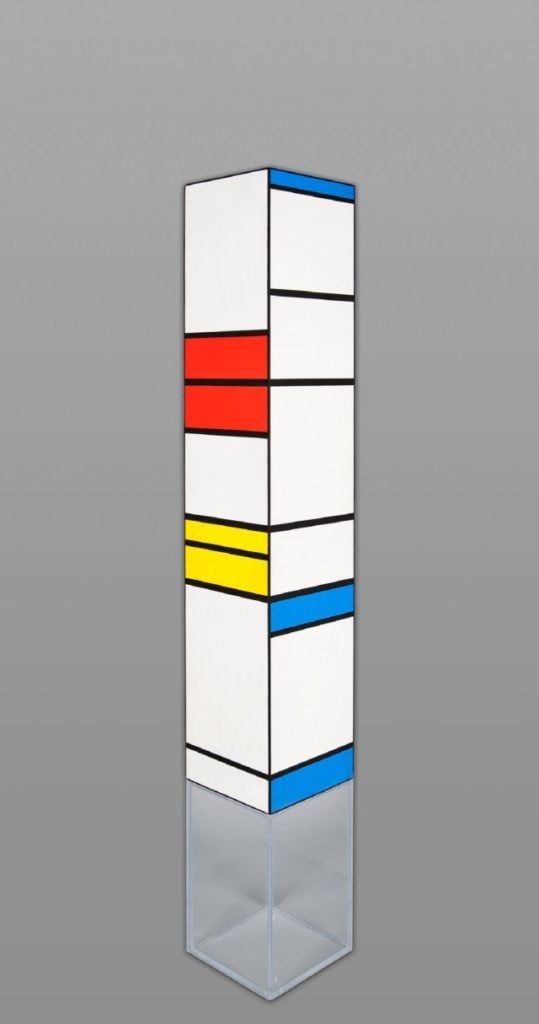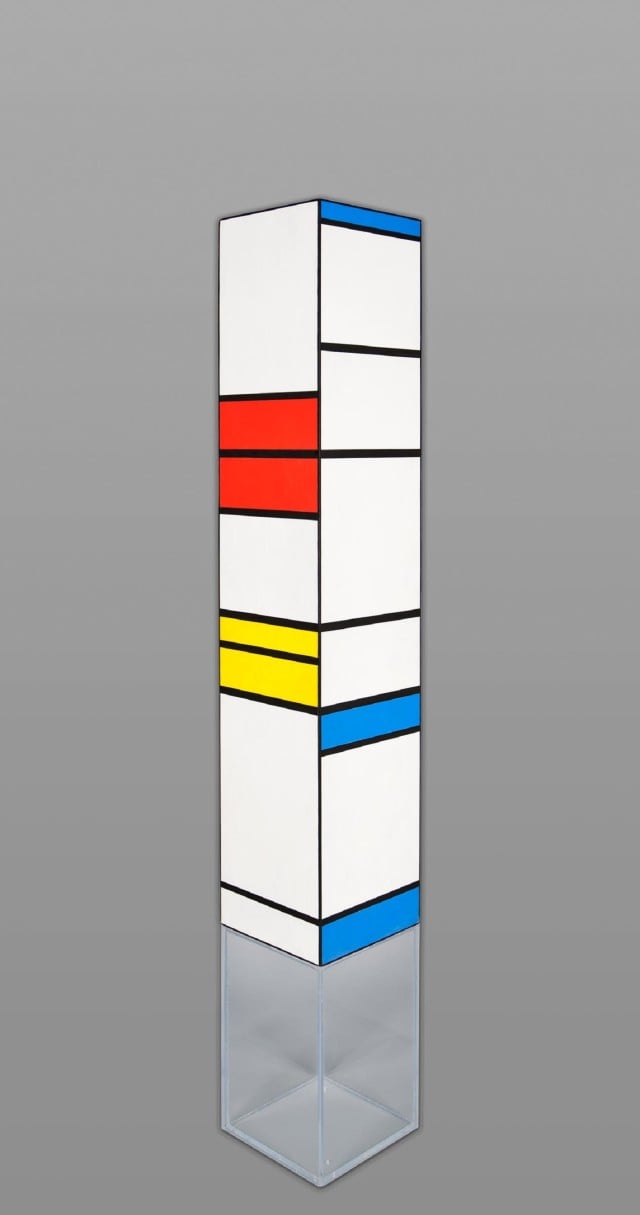Art & Exhibitions
At the Carnegie, Harry Holtzman Wanted to Have Mondrian’s Baby
THE DAILY PIC: In the 1940s, Mondrian's rigor fit the bill for American artists.

THE DAILY PIC: In the 1940s, Mondrian's rigor fit the bill for American artists.

Blake Gopnik


THE DAILY PIC (#1432): One of the things I love about permanent collections in museums is the aesthetic schizophrenia they cause. Special exhibitions rarely provide the same discombobulation. So after yesterday’s moment of Victorian rococo, today’s Pic presents the other side of the Carnegie Museum’s split personality: An utterly orderly sculpture from 1940 by the devout American Mondrianist Harry Holtzman.
At this distance in time and culture, it’s hard for us to recognize how important Mondrian was to American art between the world wars. This country came late to abstraction, without much to pave the way for it, so those who espoused its Cause saw Mondrian – than whom no one is more abstract – as the epitome of everything they were fighting for.
However derivative his American followers might have been, back then, there, they mattered, big time. (Digging into Warhol’s early education for the biography I’m writing, I’ve come to realize that coming right after America’s Mondrian moment shaped his vexed, almost Oedipal relationship to the abstract – his college prof Balcomb Greene was a close colleague of Holtzman’s.)
I’m still not certain if Holtzman’s translation of Mondrian into 3D was a bold and worthwhile next step, or some kind of mistake in his reading of The Master. Either way, I can’t get over the way it foreshadows the 1960s columns built and painted by Anne Truitt. (Edith H. Fisher Fund Accession Number 83.1 Location Gallery 11, Scaife Galleries)
For a full survey of past Daily Pics visit blakegopnik.com/archive.